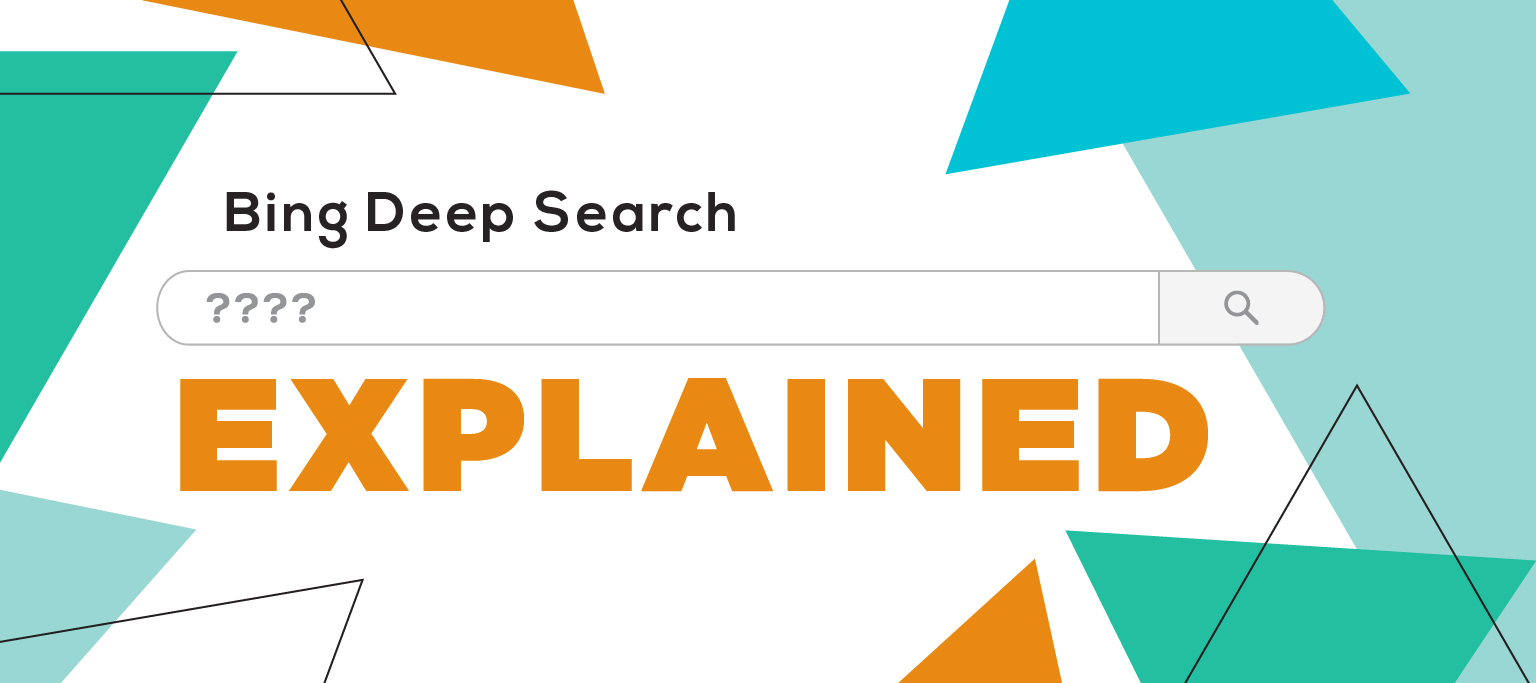With AI technology being incorporated by seemingly every player in the digital field, sometimes it can be hard to cut through the noise and understand the real impacts to your business.
One such development comes from Microsoft’s Bing search engine in the form of Deep Search. This newest evolution in search may inspire some pressing questions:
- Is Deep Search the same as ChatGPT or Bard?
- How will Deep Search change the searcher experience?
- Does Deep Search change anything about my marketing strategy?
Luckily, Leadhub has a finger on the pulse of the industry, and our specialists have all the knowledge you need to understand the changing landscape. Read on to learn more about Deep Search and how it could affect your business!
What Is Deep Search?
Deep Search is NOT just another form of AI like ChatGPT or Bard. While Microsoft has launched its own version of a helpful AI bot called Bing Copilot, Deep Search serves a different function entirely.
When searching a term on Bing, users will be able to use the “deep search” function. This prompts the algorithm to ask clarifying questions in the form of categories to zero in on what exactly the user is looking for.
For example, if you were to use Deep Search for the term “types of soil in Texas”, it may prompt you to pick from these categories to specify the goal of your search:
- Geological information
- Construction project
- Gardening
In doing so, Deep Search directly involves the user to determine which content will be most relevant to provide on the Search Engine Results Page (SERP). Whether you’re writing an essay for school about the types of soil found in Texas, looking for soil to purchase to lay under your new patio or simply trying to find the best soil to revive your garden, Deep Search makes it easier to pinpoint your goal.
What Does This Mean For Searchers?
As a searcher, this could be extremely helpful in narrowing down the results faster and easier. The days of wracking our brains to figure out the exact wording we need to type into the search engine to make it understand what we’re looking for could be fading away.
The more advanced language models can now assist us by offering options for our continued search, customizing our results even more and providing more relevant information at the top of our SERPs.
How Is Deep Search Different From Regular Searching?
To fully grasp the innovation of Deep Search, we first have to explore a brief history of this kind of language model. Years ago, Google, the powerhouse of the industry, used crawlers that relied on the number of keywords on a webpage (among other factors) to determine the rankability of a piece of content. This opened the door for some manipulative, or Black Hat SEO, tactics to be used.
For example, one could put a list of keywords in white text onto the background of a webpage. While users couldn’t see the words, Google bots could read them and use them to rank the piece higher on the SERP.
In an attempt to better regulate how relevant the content appearing on the SERP was to the searcher’s desired outcome, Google rolled out an update called BERT in 2019. BERT (Bidirectional Encoder Representations from Transformers) is a language model that launched Google search to the next level. Google’s algorithm was suddenly able to understand the nuanced difference between similar searches without explicit instruction.
If you were to search “wedding band” after 2019, Google could use BERT to determine if you were looking for a ring or in fact, a group of musicians to play at your wedding.
This development focused on one thing, the thing that has become most important to search and inspired the development of Deep Search by Microsoft: searcher intent.
The Future Of Search Is Intent
In recent years, search engines like Bing and Google have doubled down on their searcher-centric approach. Instead of holding fast to ranking factors like the number of keywords, backlinks or words, they’re evolving to consider the helpfulness and relevancy of content to the searcher.
What does this mean for your marketing strategy and business?
If you don’t have content that’s geared toward your audiences, now is the time to invest in some. Impressing Google or Bing bots will only get you so far — especially now that these powerful search engines are training their crawlers to look for content that is most useful to the people searching for it! At the end of the day, write content for people, not for search engines.
Home Services Marketing That Focuses On YOUR Customers
Leadhub is prepared to stay the course. Our team has been crafting content and SEO strategies focused on searcher intent for years. In the home services industry especially, giving homeowners the answers they need is essential. The better we can answer the questions of our audiences, the more helpful we are to searchers and search engines alike.
Deep Search may change how that information is displayed to the searcher, but focusing on helpful and relevant content is the best way to show any search engine why your content is the best option to display.
If you’re interested in more information about Deep Search or searcher-friendly content, reach out to our team!

